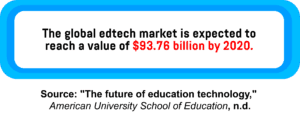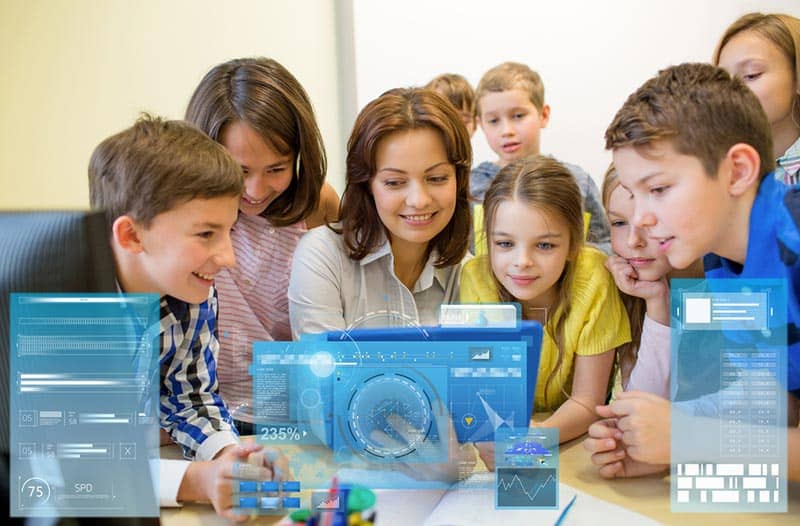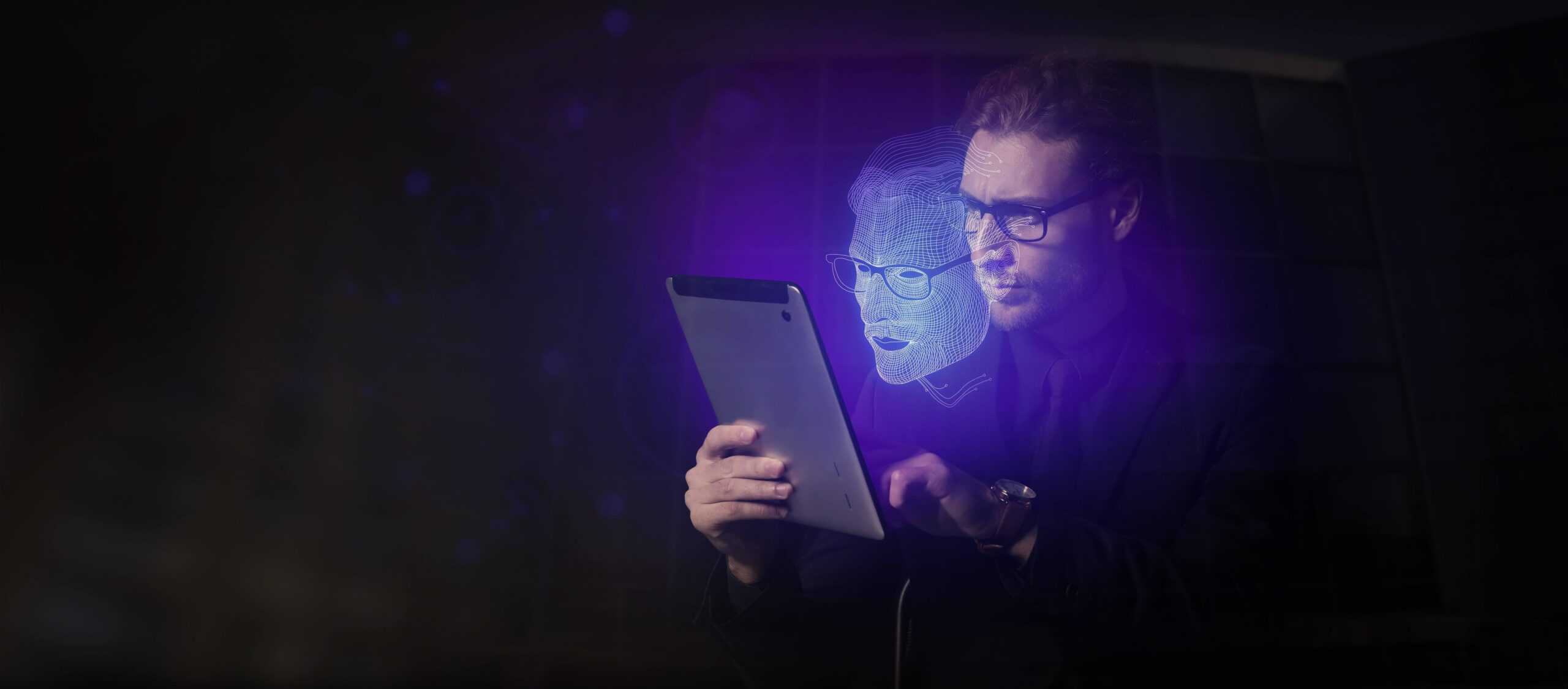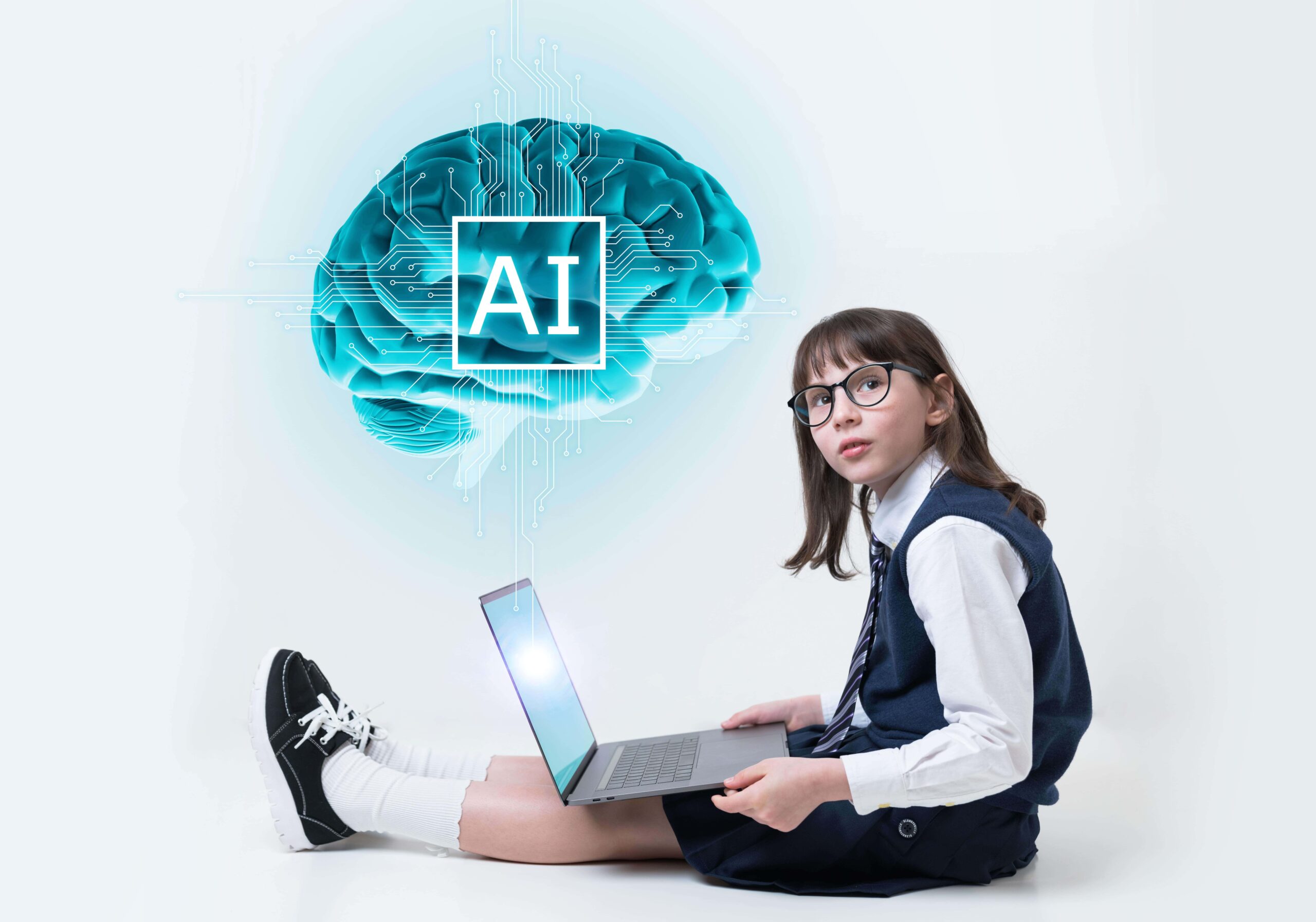For a very long time, educational practices around the world remained the same, with each generation sitting in classrooms silently while listening to a professor give a monologue about a certain subject. But thanks to technology, things are starting to change. Educational technology, also referred to as edtech, has the potential to transform how students learn both inside and outside the classroom.

According to American University’s School of Education, the global edtech market is expected to reach a value of $93.76 billion by 2020. It also reports that 75 per cent of teachers believe digital learning content will make traditional textbooks completely obsolete by 2026. With a variety of new tech tools on the market, educators are given an opportunity to make learning fun and easy.
Here’s a list of some of the most prominent companies contributing to the development of cutting-edge tech tools for education.
Photomath’s app provides students with step-by-step instructions on how to solve a specific math problem
Back in 2014, Photomath was working on text recognition technology. To promote its tech, the company created a demo app that turned out to be a great success. Today, Photomath is one of the most downloaded apps in the Play Store and the Apple App Store. This award-winning solution helps students learn and master math. According to Photomath’s website, it’s estimated that the app is used to solve more than 1.2 billion math problems every month.
To use the app, students are only required to point a smartphone’s camera at a math problem from a textbook or their notebook. The app will identify it and give step-by-step instructions on how to solve the problem. Since the app uses animated calculation steps, it’s easy for students to understand even difficult math concepts.
Photomath isn’t just for students, though. Teachers can also use it to elevate their teaching and improve students’ learning. Moreover, the app is beneficial to parents, who no longer need to hire private math tutors for their kids. Having tutors can be expensive, and they often don’t focus on self-paced learning, which isn’t the case with Photomath.
The Lingvist Course Wizard app relies on algorithms to provide language learners with personalised courses
The edtech company Lingvist developed a solution that creates personalised language learning courses. The Lingvist Course Wizard app uses artificial intelligence (AI) and big data to map the learner’s skills and knowledge, and customise course content to their individual needs in real time. Mait Müntel, one of the company’s founders, came up with the idea of creating the app while he was living in the French-speaking region of Switzerland. Müntel didn’t understand the local language, he didn’t have time to attend regular language classes, and existing digital tools weren’t really effective. So, he decided to develop his own solution. After building the prototype, Müntel used the solution for 200 hours, after which he managed to pass his French exam with a high score.
The app is quite easy to use. Users are only required to type or paste a URL related to the topic they want to learn about. Based on the user’s input, the app will create a course tailored to their needs. The Lingvist Course Wizard currently creates courses in French, English, and Spanish.
Shape Robotics developed the Fable modular robot system to help students construct robotic devices
The Danish firm Shape Robotics, founded in 2015 as a spin-off from the Technical University of Denmark, developed the Fable robot system that enables students in primary schools, high schools, vocational schools, and universities to construct robots. Students can put together different types of modules to create a device, and then add sensors and other features. The complexity of these tasks increases depending on how experienced the users are.
The Fable robot system is usually offered to educational institutions that want to improve science, technology, engineering, and mathematics (STEM) education. Another useful feature of Shape’s offerings is an online platform that enables teachers to download educational materials written by certified consultants. Furthermore, the company is using “Be Able to Fable” workshops to teach students and school staff about the benefits of robotics. By doing so, it hopes to increase awareness about Fable robotic systems and ensure that various institutions benefit from this product.
EdTech Foundry developed a chatbot called Differ that makes students a key part of the learning experience
Maintaining student engagement in the digital world using traditional methods is becoming increasingly difficult for lecturers. That’s why EdTech Foundry developed Differ, a higher education chatbot that can bridge the gap between traditional lectures and students’ digital environment. It has two functions. The first is answering common questions about classes, schedules, and other day-to-day school-related issues. Its second function is to increase student engagement by prompting students to expand their knowledge outside of class at times when they’re most receptive to it. “We see the bot getting sometimes five times higher engagement than when the teacher originally posted,” says Kristian Collin Berge, the founder and CEO of EdTech Foundry.
Blippar’s AR platform received a new upgrade
Blippar’s AR platform, called Blippbuilder, can be used in various sectors, including education, retail, entertainment, and the automotive industry, to create interactive AR content. In education, for instance, Blippbuilder helps students visualise complex topics and learn through play.
In June 2019, the company announced the launch of a web-based AR solution called WebAR. This innovative technology, which harnesses the power of image recognition, will be integrated into the Blippbuilder platform. The goal is to help anyone, including people with no coding skills, to create rich AR experiences. WebAR experiences can be viewed on all devices equipped with a camera and connected to the internet.
Photon Entertainment developed a robot designed to improve children’s creativity and logical thinking
Photon Entertainment’s educational robot, simply called Photon, is designed to improve children’s creativity and logical thinking. Photon will also help children learn the basic concepts of programming. It’s equipped with sensors, including a light sensor, range sensor, and touch sensor, which enable it to interact with the surrounding environment. The robot is suitable for children of all ages and can be used at home or in school. What makes this robot so appealing is that its capabilities are closely connected to a child’s progress. In other words, as the child progresses, the robot will, too. By solving various tasks, children will help the robot “learn everything from scratch”, including how to follow directions and identify colours.
Besides the robot, the company also developed several apps, such as Photon Magic Bridge and Photon Robot. Photon Magic Bridge is designed for educational institutions, allowing them to connect up to eight robots, while Photon Robot features 200 challenges in the form of stories and adventures.
An award-winning platform called Osmo combines tactile experiences with innovative tech
The gaming company Osmo is combining tactile exploration with technology to improve students’ learning outcomes. The company developed an award-winning platform that allows students to learn through play. It consists of a base and a red reflector that attaches to a tablet or phone. After a student places the device into the base and attaches the reflector to its camera, Osmo’s AI technology will scan the area in front of the device and make students’ creations come to life on the screen. This will engage students in the lesson and make learning more fun. Students can spell, draw, and code thanks to Osmo’s innovation.
According to the company’s website, Osmo is being used in 30,000 classrooms in 42 countries. Although Osmo has reached a million families so far, the company wants to scale its tech even more and reach every child. As the company’s CEO, Pramod Sharma, explains, “For us to grow, we need to invest in content. We have a lot of ideas [and] have proven a set of interactions, [but] a lot can be expanded with more content and levels.”
Interactive Scientific is a VR-based molecular visualisation platform
Interactive Scientific (iSci) developed a cloud-based platform that makes it easy for various teams to interact with molecules in virtual reality (VR). The product, which is essentially a virtual lab in the cloud, enables scientists to collaborate on biological, chemical, and materials molecular simulations using a web-based interface and a VR headset. Molecular data is visualised in 3D, and users can select various options to derive useful insights.
Real-time 3D visualisation can be applied in many scenarios, ranging from training sales teams to drug discovery meetings. It’s especially beneficial for remote teams that can compare their work and research and development findings using immersive technologies.
Teachers Pay Teachers features a wide selection of educational resources tailored to students’ needs
Teachers Pay Teachers is an online marketplace that features more than three million resources for teachers. These resources are created by educators who understand today’s learners’ needs. According to the company’s website, five million teachers have used the service in the last year. Named as “one of the top 50 Most Innovative Companies in the world in 2019”, Teachers Pay Teachers has become a go-to place for US teachers. In fact, it’s estimated that two out of three teachers in the US have used a resource from Teachers Pay Teachers. The service provides educators with a full-year curriculum, assessments, lesson units, and video resources. Besides teachers, this service is also suitable for homeschoolers, tutors, school administrators, and parents.
The idea for creating this online marketplace came from Paul Edelman, who worked as a teacher in the early 2000s. Back then, there weren’t a lot of teaching resources and materials available on the internet, so Edelman had to create his own. Those same materials were later used by Edelman’s colleagues in their classrooms. Resource sharing is now easier thanks to Teachers Pay Teachers.
Bright Little Labs creates content that inspires children to develop critical thinking and coding skills
Bright Little Labs is a UK-based business that develops interactive content to promote critical thinking, computer science, and creativity for children aged five and above. It operates in over 30 countries and relies on a story-led approach in designing its products. The Megapack, for instance, is a personalised gift for children that consists of the Detective Dot adventure book, a letter from the Children’s Intelligence Agency (CIA), a number of spy missions, toys, and a membership to the CIA.
And far from being a secretive spy unit, Bright Little Lab’s CIA is actually a web-based platform that provides children with games and stories that spur their imagination and help them learn how to code. Besides this, the company is making inclusive content that features female characters, as well as black, Asian, and other ethnic minority characters.
Technology is disrupting the education sector
Like every other industry today, education is experiencing a major shift. New technologies are changing the way students acquire knowledge, as well as how they interact with their teachers and other students. While this digital disruption might change educators’ role, it won’t make them completely obsolete. Face-to-face interaction will continue to have a strong presence in education, and if it’s combined with innovative edtech solutions, it can do wonders for both students and teachers.




